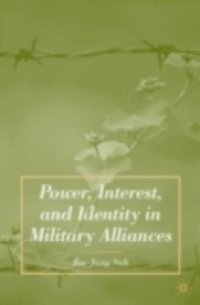Литмир - Электронная Библиотека > Suh Jae-Jung (EN) > Power, Interest, and Identity in Military Alliances

| Power, Interest, and Identity in Military Alliances
Чтобы оставить свою оценку и отзывы вам нужно зайти на сайт или зарегистрироваться | ||||||||||||||||||||||||||||||||||||||||||||||||||||||||||||||||||||||

| Power, Interest, and Identity in Military Alliances
Чтобы оставить свою оценку и отзывы вам нужно зайти на сайт или зарегистрироваться | ||||||||||||||||||||||||||||||||||||||||||||||||||||||||||||||||||||||